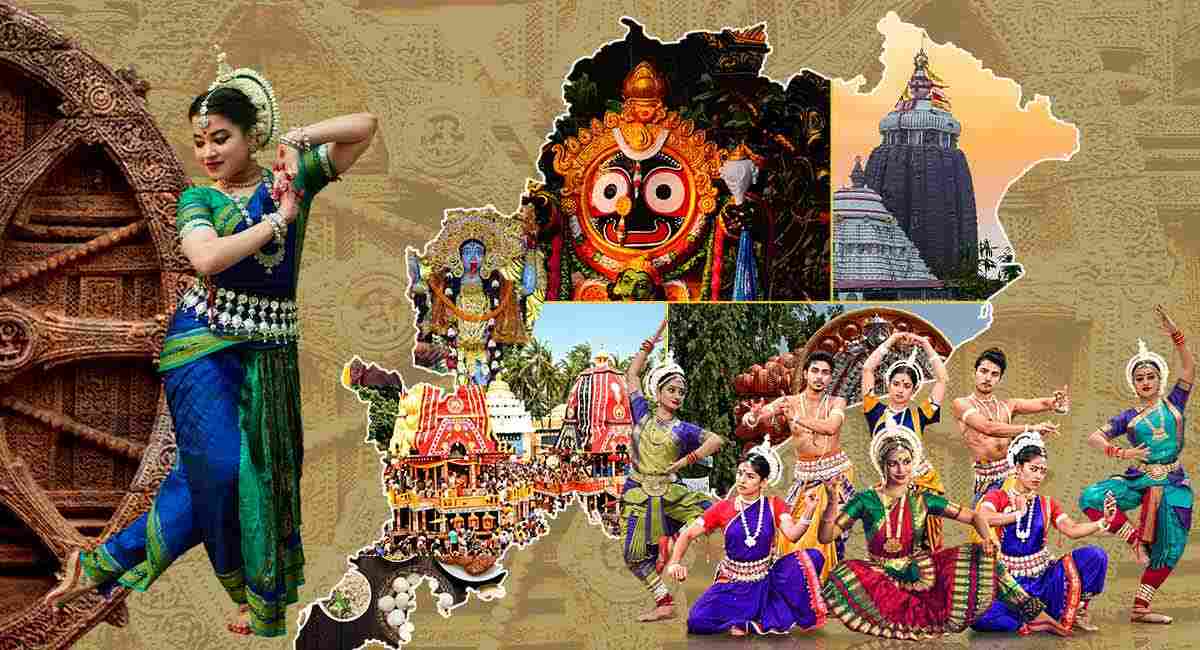Utkal Divas: Cultural and Celebrations
Every year on April 1st, the eastern Indian state of Odisha comes alive with vibrant celebrations, cultural events, and a profound sense of pride as it observes Utkal Divas, also known as Odisha Day. This day holds immense historical and emotional significance, marking the formation of Odisha as a separate province on April 1, 1936. It was the culmination of a long and inspiring movement to unite the Odia-speaking population under a single administrative unit. Utkal Divas is not merely a commemoration of political history—it is a heartfelt tribute to Odisha’s rich cultural legacy, language, and unique identity.
The Historical Backdrop
Before 1936, Odia-speaking regions were fragmented across multiple provinces under British colonial rule, including Bengal, Bihar, and the Madras Presidency. This division marginalized the Odia language and culture, threatening their survival. The community’s yearning for a unified province where their linguistic and cultural identity could flourish gave rise to a determined movement.
Visionary leaders such as Utkal Gourav Madhusudan Das, Gopabandhu Das, and Fakir Mohan Senapati, among others, championed the cause with unwavering dedication. Their tireless efforts, sacrifices, and far-sighted leadership eventually led to the creation of Odisha as a distinct province. Odisha’s formation as a state based on language set a precedent for future state formations in India.
The Significance of the Name “Utkal”
The name “Utkal” has deep cultural and historical meaning. The Puranas and the Mahabharata, two ancient Indian texts, refer “Utkal,” a region renowned for its excellence in the arts and culture. The name also appears in India’s national anthem, “Jana Gana Mana,” symbolizing Odisha’s esteemed place in the nation’s cultural tapestry. Thus, “Utkal” is not just a name—it is a reflection of the state’s artistic and spiritual legacy.
How is Utkal Divas Celebrated?
People celebrate Utkal Divas with great enthusiasm and pride, both within the state of Odisha and among the Odia community worldwide. The day typically begins with the ceremonial hoisting of the Odisha state flag, accompanied by the singing of patriotic songs and the offering of tributes to the state’s founding leaders.
Various cultural programs are organized throughout the state, showcasing Odisha’s rich cultural heritage and artistic traditions. Folk dances like Ghumura and Sambalpuri, Odissi classical dance performances, music concerts, poetry recitations, and art exhibitions bring the spirit of Odisha alive. Schools and colleges host essay competitions, debates, and cultural performances, encouraging students to learn more about Odisha’s history, achievements, and cultural wealth.
An essential part of the celebration is remembering and honoring Madhusudan Das, affectionately known as “Madhu Babu.” People remember his enormous contributions to law, education, and the advancement of the Odia identity with great regard, as he fought for the unification of Odisha.
Cities such as Bhubaneswar, Cuttack, and Puri host grand fireworks displays, parades, and food festivals that highlight Odisha’s culinary delights. Odia diaspora communities across India and overseas also organize cultural evenings, traditional feasts, and discussions to stay connected with their roots.
Odisha: A Land of Heritage and Diversity
Utkal Divas also offers an opportunity to reflect on the diverse and ancient heritage of Odisha. The state boasts an extraordinary legacy of temple architecture, literature, and handicrafts. Iconic monuments, such as the UNESCO World Heritage Site Konark Sun Temple and the revered Jagannath Temple in Puri, stand as proud reminders of the state’s architectural and spiritual grandeur.
Odissi, one of India’s oldest classical dance forms, originated here, enriching the nation’s cultural fabric. The state is equally celebrated for its folk traditions, such as the Chhau and Ghumura dances, as well as its exquisite handicrafts, including Pattachitra paintings, silver filigree work, appliqué art from Pipili, and stone sculptures.
Odisha’s natural beauty is as impressive as its cultural wealth. From the shimmering waters of Chilika Lake, the largest coastal lagoon in Asia, to the dense forests of Simlipal National Park, the state offers an array of breathtaking landscapes. Its coastline, waterfalls, and wildlife sanctuaries make Odisha a vibrant and diverse land, blending cultural richness with natural splendor.
Progress Since Formation
Since achieving statehood, Odisha has undergone significant transformation. Initially an agrarian economy, it has diversified into mining, industrialization, education, and information technology. Odisha has been a substantial contributor to India’s mineral wealth, thanks to its abundance of natural resources, including bauxite, coal, and iron ore.
Cities like Bhubaneswar and Rourkela have emerged as important centers for education, technology, and industry. Known as the “Temple City,” Bhubaneswar is now also recognized as a Smart City, home to prestigious institutions such as the National Institute of Science Education and Research (NISER), the All India Institute of Medical Sciences (AIIMS) Bhubaneswar, and the Indian Institute of Technology (IIT) Bhubaneswar.
Odisha’s expertise in disaster management, particularly its efficient handling of cyclones, has drawn national and international acclaim. The state’s efforts in promoting tourism, preserving its rich heritage, and fostering inclusive development continue to strengthen its standing on the national stage.
Utkal Divas in the Modern Context
In today’s dynamic world, Utkal Divas is a call for unity, cultural preservation, and forward-looking development. It encourages every Odia to take pride in their roots, celebrate their heritage, and contribute towards the continued growth and progress of the state.
For the youth, it serves as an essential link to their history, inspiring them to cherish and sustain their legacy. For leaders and policymakers, it is a moment to honor the visionary efforts of the past and to set new goals for inclusive and sustainable development.
Final Thoughts
Utkal Divas is more than just a historical anniversary—it is a vibrant celebration of a resilient identity, a rich cultural mosaic, and a spirit of unity that unites the people of Odisha. As the state continues to evolve, Utkal Divas reminds us of the sacrifices, dreams, and aspirations that led to the formation of Odisha.
On this special day, let us honor our heritage, celebrate our present, and dedicate ourselves to building a prosperous and inclusive future for the state of Odisha.
Bande Utkala Janani!


